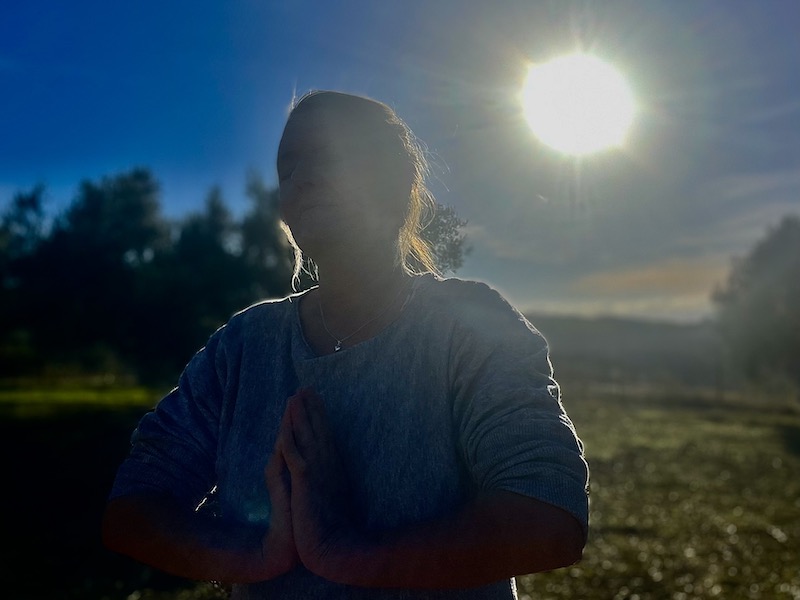In recent years the importance of self-love has become much more widely recognised. But if you don’t love yourself, how do you know whether you love yourself as much as you could or – dare I say it, should?
Why should you love yourself anyway? Do you know?
One answer is that self-love is the foundation of a truly rewarding and joyful life and can cause a ripple effect through everything.
We can experience increased health, improve our relationships and even boost our careers.
Achieving a level of self-love will have a positive impact in all areas of your life, from your experience with friends and family, from passion-hobbies to work and from exercise to health, to name just a few.
So if that’s true, how much should you love yourself?
The truth is that loving yourself looks different to everybody, depending on their starting point.
For some of us, just feeling ok for a few moments is challenging, while for others we appear to be doing just fine but have some insecurities deep down below the surface.
Wherever we are on the self-love spectrum, we can always dive in and create more self-love. Because increased self-love will lead to increased love to share with others and increased joy in our lives.
And a lack of self-love is just one of the ways we give away our power.
What’s The Deal: Why Love Ourselves?
When we first begin to love ourselves we create a shift in energy which becomes reflected in our lives around us.
Change can only happen by taking one step from where we are. So if we feel extremely negative, the first step will be just one step forward in a positive direction from that emotion.
As time passes, we notice that small steps build up to create huge journeys, just as walking up a staircase step by step can transform you to a completely new height.
So it is with our self-love journey. We raise our vibrations in a steady manner, bit by bit until one day we turn around and look at the stunning view and we recognise just how far we’ve come.
And it’s that journey of self-love that leads us to a life we love.
We feel joy within us, which transmits to those around us. We also find ourselves creating physical improvements in our lifestyle in order to honour ourselves.
And with our new-found self-love, we can reduce our stress levels dramatically.
Because we no longer have to carry the world upon our shoulders.
Related Articles
- Mindset coaching to achieve your goals
- What is mindset coaching? How to unleash your inner strength
- 9 Secrets to unlock your potential for success
30 Signs You Don’t Love Yourself As Much As You Should
These signs that we don’t love ourselves will occasionally pop up in all of our lives.
The secret is to check whether we repeatedly experience any of these and to what extent.
For example, putting our friend’s needs above ours one day when we’re out shopping together isn’t a sign that we don’t love ourselves – it’s a sign that you value your friendship enough to prioritize our friend.
But if we find ourselves repeatedly putting ourselves last, then it’s time to take notice.
I know for sure that I used to be extremely low on the self-love spectrum even though I would never have agreed with that sentence at the time because I simply didn’t know any different.
Years ago I would have ticked numbers 1, 2, 3, 4, 7, 8, 9, 10, 13, 16, 17, 25, and 27
WOW! That’s 13!!
Now do it yourself and see how many resonate with your current lifestyle.
30 Signs You Don’t Love Yourself
Here are the top 30 tell-tale signs that we tend to do when we haven’t uncovered the power of self-love.
- Seeking external approval for everything we do
- Worrying about people’s opinion of us
- Prioritizing other people’s needs over our own
- Feeling responsible for other people’s lives and their problems
- Automatically blaming ourselves when something doesn’t go to plan
- Negative self-talk and self-criticism become a normal part of our day
- Wanting everybody to like us
- Struggling to say ‘no’ to others
- Feeling embarrassed about how we look or not fully loving and accepting our body
- Thinking our body isn’t good enough
- Thinking negative thoughts when we look at our reflection in the mirror
- Believing other people have it easier than we do
- Struggling to forgive ourselves for our mistakes, past and present
- Believing that we get nothing given to us (while others get everything)
- Comparing ourselves to others and feeling insufficient
- Not being able to accept criticism as a positive tool for growth
- Not feeling comfortable accepting praise or compliments
- Sabotaging our own success
- Not being able to move on after experiencing failure
- Demanding perfection from ourselves
- Believing we are inadequate or a failure
- Believing we should be better at everything we do
- Letting other people treat us badly: toxic relationships
- Not looking after our physical health and body
- Not taking time out for ourselves
- Unable to grow or step out of our comfort zone due to fear of failure
- Using coping mechanisms that are harmful: drinking excessively, taking drugs, etc
- Believing that we are undeserving of love and happiness
- Interpreting social media likes and followings as a reflection of our own worth
- Feeling envious of other people
Exercise for Evaluating Self-Love
Take out a notepad and write each number which you recognise as appearing in your own life.
- How many of these resonate with you?
- Next, think about each one and ask yourself how often it appears in your daily life.
- To what intensity does it exist? Does it form a part of your daily structure? Does it impact your life?
- Finally, consider each point and put them in order, from most impact to least impact.
Now you have a tangible map of how to proceed and become more aware of how you’re self-sabotaging your own self-love.
Related Articles
- How to Not Get Offended by Insults (15 Powerful Strategies)
- 15 Signs That You Give Up Too Easily
- How to Stop Being a Quitter and Start Achieving Your Goals
Final Thoughts on 30 Signs You Don’t Love Yourself Enough
Learning to love ourselves is one of the most powerful ways to flip our lives around, and it’s a tool that all of us can utilize to improve our quality of life.
We are not victims of circumstance, we are victims of subconscious beliefs. But once we become aware of those subconscious beliefs, we are no longer victims but creators of our lives.
I hope you enjoyed this article and that you discovered something about yourself.
Let me know in the comments how many points you scored. And if you’d like my support to increase self-love, don’t hesitate to fill out the form in the sidebar of this page, or send me a message.








